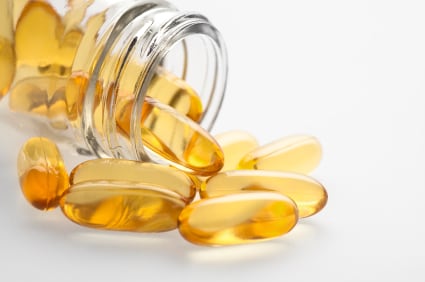Young women had greater improvements in episodic memory, while men experienced greater improvements in reaction times of working memory following six months of supplementation with 1.16 grams of DHA per day, according to findings published in the American Journal of Clinical Nutrition.
Indeed, reaction times for men increased by 20% - or completing working memory tasks 223 ms faster – compared to men in the placebo group.
“This study showed, for the first time to our knowledge, that DHA supplementation improved memory and RTs of memory in healthy young adults whose habitual diet was low in DHA, and sex modulated the response,” wrote the researchers, led by Welma Stonehouse from Massey University in New Zealand.
“These memory-related cognitive domains are the building blocks of more-complex cognitive functions or behaviors that are common in everyday life. Thus, young healthy adults may cognitively benefit from an increased consumption of DHA.”
Spread the word
The research was welcomed by Harry Rice, PhD, VP of regulatory & scientific affairs for the Global Organization for EPA and DHA Omega-3s (GOED). “Given that low intake of omega-3s is a global concern, the present findings could translate into far-reaching benefits,” he told us.
“For years, many people have scoffed at the potential cognitive benefits of DHA in this age group (younger healthy adults). Now that we have the piece of the puzzle for which we've been looking, it's time to spread the word.”
Study details
Stonehouse and her co-workers, which included scientists from the University of East Anglia and Northumbria University in England, recruited 176 healthy adults aged between 18 and 45 to participate in their randomized, placebo-controlled, double-blind study.
Participants were randomly assigned to receive either DHA supplements (1.16 g/d) or placebo for six months. The supplements and placebo were supplied by Efamol Ltd and Health & Herbs International Ltd.

A battery of computerized cognitive tests indicated that DHA supplements improved reaction times of episodic and working memory for the general group, compared with placebo, but the benefits were more pronounced for women for episodic memory, while men benefited more for reaction times of working memory.
Genotypes
The researchers also examined the potential influence of genes, and the apolipoprotein E genotype (ApoE) in particular. “ApoE is a major genetic risk factor for Alzheimer’s disease with carriers of the APOE4 allelic variant (about 25% of whites) at several-fold increased risk,” they explained.
No general differences between the ApoE status and cognitive performance were observed. However, men who were both APOE4 carriers and non-carriers benefited from DHA supplements for reaction times of working memory, compared with the placebo group, said the researchers, with the effect “considerably greater in APOE4 carriers”.
“A similar effect was seen in male APOE4 carriers for reaction times of attention with an improvement in the DHA group and worsening in the placebo group, which resulted in a significant difference between groups,” they added.
“More-robust randomized control trials that are long enough (longer than six months) and take into account the habitual intake of long chain omega-3 PUFAs are needed to confirm the findings of this study and to determine the most effective dosage of DHA for optimal cognitive function,” they concluded.
Source: American Journal of Clinical Nutrition
Published online March 20, 2013. doi:10.3945/ajcn.112.053371
“DHA supplementation improved both memory and reaction time in healthy young adults: a randomized controlled trial”
Authors: W. Stonehouse, C.A. Conlon, J. Podd, S.R. Hill, A.M. Minihane, C. Haskell, D. Kennedy
